I always wonder what my Siamese cat’s age equals to human years. Is she older or younger than I am?
After all, cats mature much faster than humans do and can reach adulthood by around 12 months old. Their growth rate also slows down after around two years old. Unlike humans who grow in height until the age of 20 or 25 years, cats finish growing in height around a year old.
Knowing their human age might seem like an academic exercise. But, it’s actually quite important to know their exact age. It can affect how they react to certain situations and stimuli.
During their first two years of life, cats mature a lot faster. The first year of a cat’s life is equal to 15 human years. By a cat’s second year, he or she reaches the human age of 24. After that, each human year corresponds to about four cat years.
In this article, we’ll look at the average lifespan of Siamese cats and how to calculate their age in human years. I did a little research and found some helpful information on converting a cat’s age to human years. It’s not an exact science, of course, but it gives us a general idea.
What is the average lifespan of a cat?
Most pet cats have a lifespan of 10-15 years. But, some factors might affect how long your cat lives. These include healthcare, diet, and the environment.
When it comes to cat longevity, Siamese cats are often at the top of the list among other breeds. These sleek and graceful felines can live to be 14 or 15 years old. Some have reached the ripe old age of 20!
If you want your Siamese cat to be long-lived, there are a few things you can do to give her the best chance possible.
Follow these multi-pronged approaches. You sure can help your Siamese cat enjoy a long and happy life.
My Siamese cat has been living with me for almost 10 years now, and he’s still going strong. He’s never been sick or had any major health issues. But, he has some minor problems that I’ve been able to take care of with some preventive care.
What’s the oldest cat to ever live?
The oldest cat on record was Creme Puff, who lived to be an impressive 38 years and 3 days old. Creme Puff was born on August 3, 1967, and passed away on August 6, 2005.
Thirty-eight years is already pretty impressive. But, it’s important to note that the average lifespan of a domestic cat is only about 14-15 years. So, Creme Puff beat the odds!
How do you calculate a cat’s age in human years?
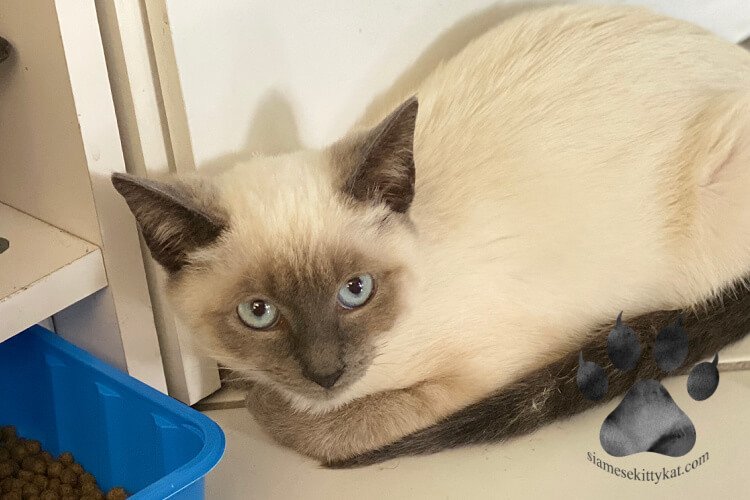
A common saying states that a cat’s life equals seven human years. This is untrue, though, as a cat’s life expectancy has increased recently.
You can compare your cat’s age to that of humans using the information below:
| Cat | Human |
| 1 | 15 |
| 2 | 24 |
| 3 | 28 |
| 4 | 32 |
| 5 | 36 |
| 6 | 40 |
| 7 | 44 |
| 8 | 58 |
| 9 | 52 |
| 10 | 56 |
| 11 | 60 |
| 12 | 64 |
| 13 | 68 |
| 14 | 72 |
| 15 | 76 |
| 16 | 80 |
| 17 | 84 |
| 18 | 88 |
| 19 | 92 |
| 20 | 96 |
It’s hard to keep track of your cat’s age. If you want to know how many human years your cat is older, you can use an online cat age calculator to find out!
How can I tell the age of my cat?
Here is how you can figure out the age of your cat:
1. Appearance. A full-grown adult cat will be bigger than a kitten, so you can usually tell at a glance that it’s older than a few months old.
When I brought my new kitten home, he was so small that he fits right in the palm of my hand. It’s hard to believe he’ll ever be anything other than tiny and adorable. But time has a way of moving fast. Before I know it, my little kitten has turned into a full-grown cat.
2. Eyes. Younger cats will have brighter, more vibrant eyes. Older cats will have duller, more faded eyes. You can also look at the shape of your cat’s eyes. Younger cats will have rounder, more almond-shaped eyes. Older cats will have more slanted, oval-shaped eyes.
3. Teeth. Cats usually start losing their baby teeth around 4 months old; they should all be gone by 6 months.
4. Coat. Older cats have thick, matted fur. Young cats usually have shorter fur with a finer texture. Older cats often have long hair that curls or stands up in tuffs. You can also look at the color of your cat’s coat. A younger cat’s coat will be more vibrant, while an older cat’s coat will be duller.
5. Size. By the time they are six months old, kittens usually weigh almost twice as much as they did at birth.
6. Underbite. Cats usually develop this condition when they’re still young. Thus, it can signify their actual age. If you notice this condition, opt for a veterinarian visit as soon as possible. There could be an underlying issue causing the underbite, and it’s important to rule that out.
7. Length of whiskers. As cats age, their whiskers will start to grow out longer and thinner. This gives them a more mature appearance.
8. Behavior. Kittens are always on the go, running, climbing, and playing. They never seem to tire, no matter how much they play. In comparison, adult cats are much more relaxed. They still enjoy a good game of chase now and again. But they’re as happy taking a nap in a sunny spot.
When trying to determine your cat’s age, consider all these factors.
Do outdoor cats age faster?
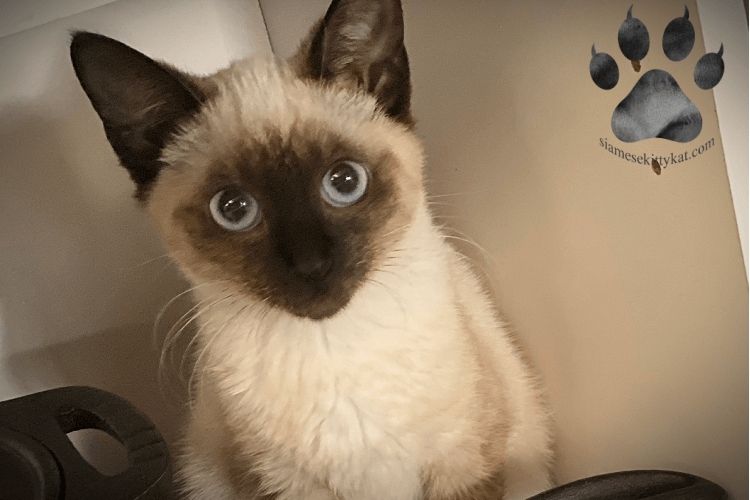
Yes, outdoor cats age faster.
We all know that cats age faster than humans. But did you know indoor cats live longer than outdoor cats? Studies show that the average lifespan of an indoor cat is about 15 years. In comparison, the average lifespan of an outdoor cat is only 3-5 years.
So why do outdoor cats age faster? There are a few reasons. Outdoor cats have to deal with many dangers that indoor cats don’t. These include cars, other animals, bad weather, and diseases. Plus, they rarely have access to the same level of medical care as indoor cats. All these factors can take a toll on a cat’s health and shorten its lifespan.
So if you’re wondering whether you should keep your cat indoors or let it roam free, know there’s a trade-off. Indoor cats may not have as much fun as outdoor cats, but they’ll likely live longer lives.
Signs of Old Age in Siamese Cats
Your cat may show signs of aging by the age of ten.
1. Weight loss (or gain). This can be because of a decrease in muscle mass, a decrease in metabolism, and a decrease in activity level.
Weight loss can cause various health issues, including arthritis, diabetes, and heart disease.
It’s critical to keep track of your elderly cat’s weight and alter his diet. If your cat is eating dry food, you may wish to switch to a wet food diet or add some canned food to his diet. You may also wish to increase his activity level by playing with him more often or getting a catnip toy.
There’s no need to fret if your cat is currently at a healthy weight. Continue to provide him with a healthy diet and lots of play and exercise opportunities.
2. Changes in eating habits. Your cat may eat less (or more) than usual, and they may also show a preference for certain types of food.
3. Deteriorating eyesight.
Siamese cats are notorious for their sharp vision. So, any deterioration in eyesight is a definite sign that your cat is getting up there in years. This can manifest in different ways, such as difficulty seeing in low light or not being able to see close up.
If your feline loses some or all her vision, do not alter the position of your furniture. She will rely on what she is familiar with. You may want to put a rug at each door to help her tell one room from the next.
4. Hearing loss. Cats experience hearing loss as they age. This may not be immediately noticeable. But, you may notice your cat doesn’t react to loud noises as they used to or seems to nap more during the day.
Even if she has lost her hearing, she can still feel vibrations. Make a quiet entrance to the room if you don’t want to startle her. Stamp your foot on the floor when you enter so that she will know you are there.
5. Loss of muscle mass. As they age, they may start to lose muscle mass. This can make them seem thinner and less agile. You may also notice your cat doesn’t jump as high or move as fast as they used to.
6. Dental disease. As your cat ages, he or she may experience dental problems. This can include gum disease, tooth decay, and tooth loss. You may notice your cat’s teeth are yellow or discolored or that they’re drooling more than usual. You should take your cat to the vet for a dental checkup and cleaning at least once a year.
7. Less fastidious grooming. Senior cats may not be as adept at self-grooming, so make sure you give her regular spa sessions.
8. Thinner, less shiny coat. Your cat’s coat may become thinner and less lustrous as they age. They may also lose some furs, particularly around their face and legs.
9. Changes in behavior. Their meows may become louder and more persistent, particularly at night. They may also become more irritable and aggressive. This happens especially if they feel their territory is being threatened.
My cat would meow at me for hours on end, sometimes even when I was trying to sleep. It seemed like every time he did this, it got louder and more persistent. Finally, I would have to get up and give him attention.
10. Senior cats may become disoriented and urinate outside the litter box.
11. You might also see some age-related health issues. These include arthritis, kidney disease, diabetes, infection, cancer, and heart disease. These diseases are not common among younger cats. But, they are common among older cats due to their weak immune system and decreased mobility.
There is no way to prevent all forms of chronic disease in older cats. But, regular medical care can keep them as healthy as possible throughout their lives.
Your senior cat should have more frequent health inspections. You may want to increase his regular checkups with a vet to twice a year. This can help them prevent complications from developing.
If your cat is reaching her golden years, adjust her diet and lifestyle to make her comfortable. And don’t forget to give her lots of love!
The Benefits of Knowing Your Cat’s Age
Most cat owners don’t know their cat’s age. And while it may not seem like a big deal, there are some benefits to knowing your cat’s age.
1. It can help you better understand your cat’s health. Cats age at different rates, so knowing your cat’s age can give you a better idea of what health problems to watch out for. It can also help you gauge how much time you have left with your furry friend.
2. Knowing your cat’s age can help you better understand their behavior. Senior cats, for instance, may act in a different way than they did when they were younger. This can include changes in sleep patterns, eating habits, and more.
3. Knowing your cat’s age can give you a better sense of who they are. After all, age is only a number. But it can be a helpful number to know when it comes to your furry friend.
How can I extend the lifespan of my cat?
I’m sure that we all want our cats to live long, happy, and healthy lives. There’s no guarantee that any of us will have a cat that lives to a ripe old age. But there are things we can do to give our cats the best possible chance at a long life.
1. As a pet parent, it’s important to know that there are things you can do to prolong your cat’s life. And most of them boil down to one simple word: diet. This seems like a no-brainer. But, it’s actually surprising how many people don’t provide their cats with the basic food necessity.
A good diet for your cat is high in protein and low in carbs. You should also avoid giving them too many treats and ensure they always get enough water.
If you’re unsure about what type of food or how much food your cat needs, your veterinarian will give you guidance.
2. Another important thing is to make sure they’re getting enough exercise. An excellent way to do this is to set aside time each day for a play session. This will help keep their mental and physical stimulation.
3. Besides diet and exercise, you can also keep your cat healthy by taking them for regular vet checkups.
Check-ups are essential not only for detecting and treating any underlying health issues. They also prevent potential problems before they develop. Your veterinarian will give you more specific advice on caring for your cat based on their needs.
4. And last but not least, make sure they’re always indoor cats. Cats that live outdoors face many dangers. These include cars, other animals, and harmful weather conditions. Keeping your cat indoors will protect them from these dangers.
I hope you’ve found this article helpful in understanding your cat’s age.
If you have questions about your cat’s age, be sure to consult a veterinarian.
It’s important to check your cats’ health and keep them safe from accidents, so they live longer than average!
Want to immerse yourself more in the captivating world of Siamese cats? I’ve got all the information you need from their distinct color points to their fun personalities: Siamese Cats: Unique Features and Personality

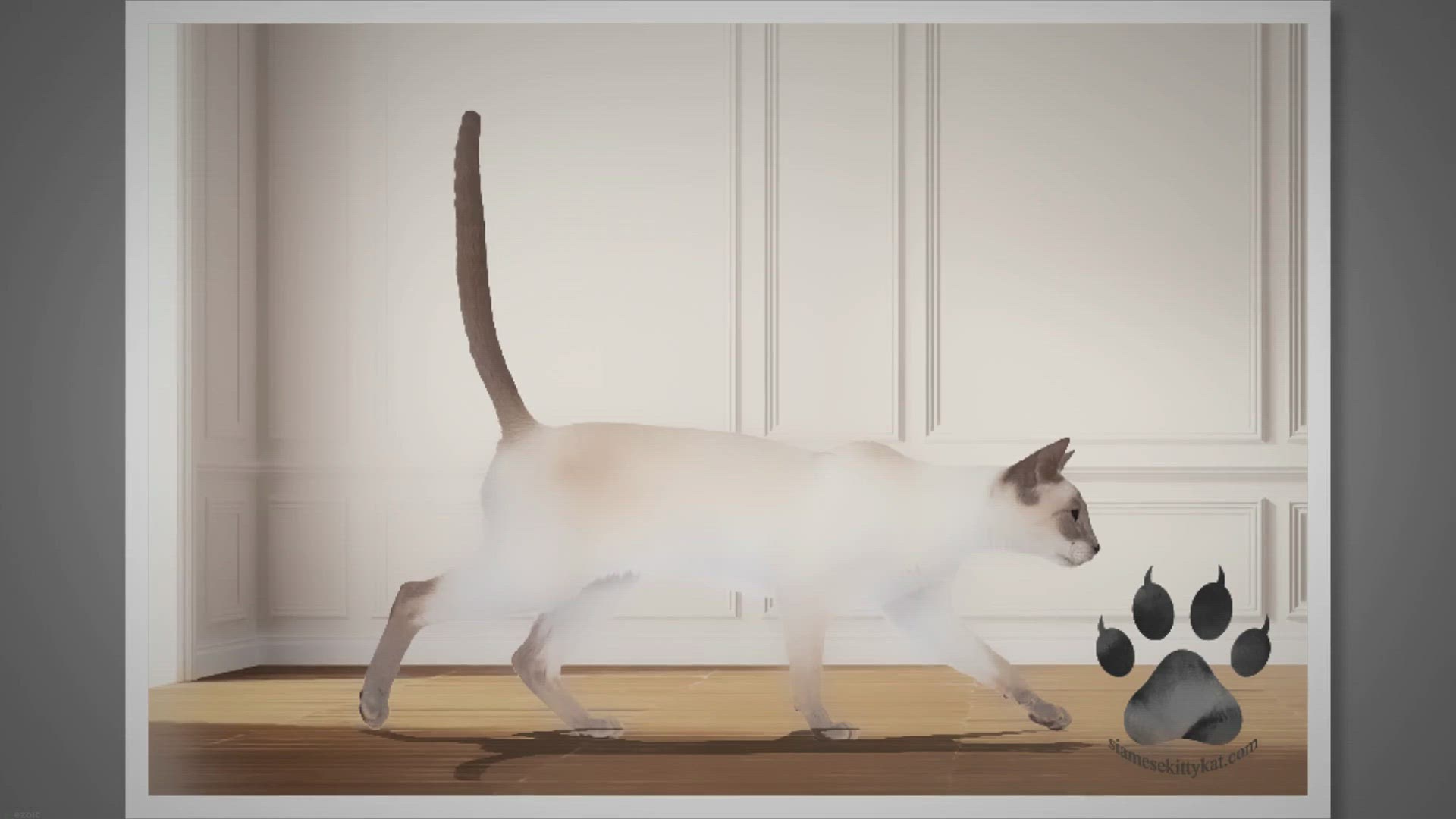

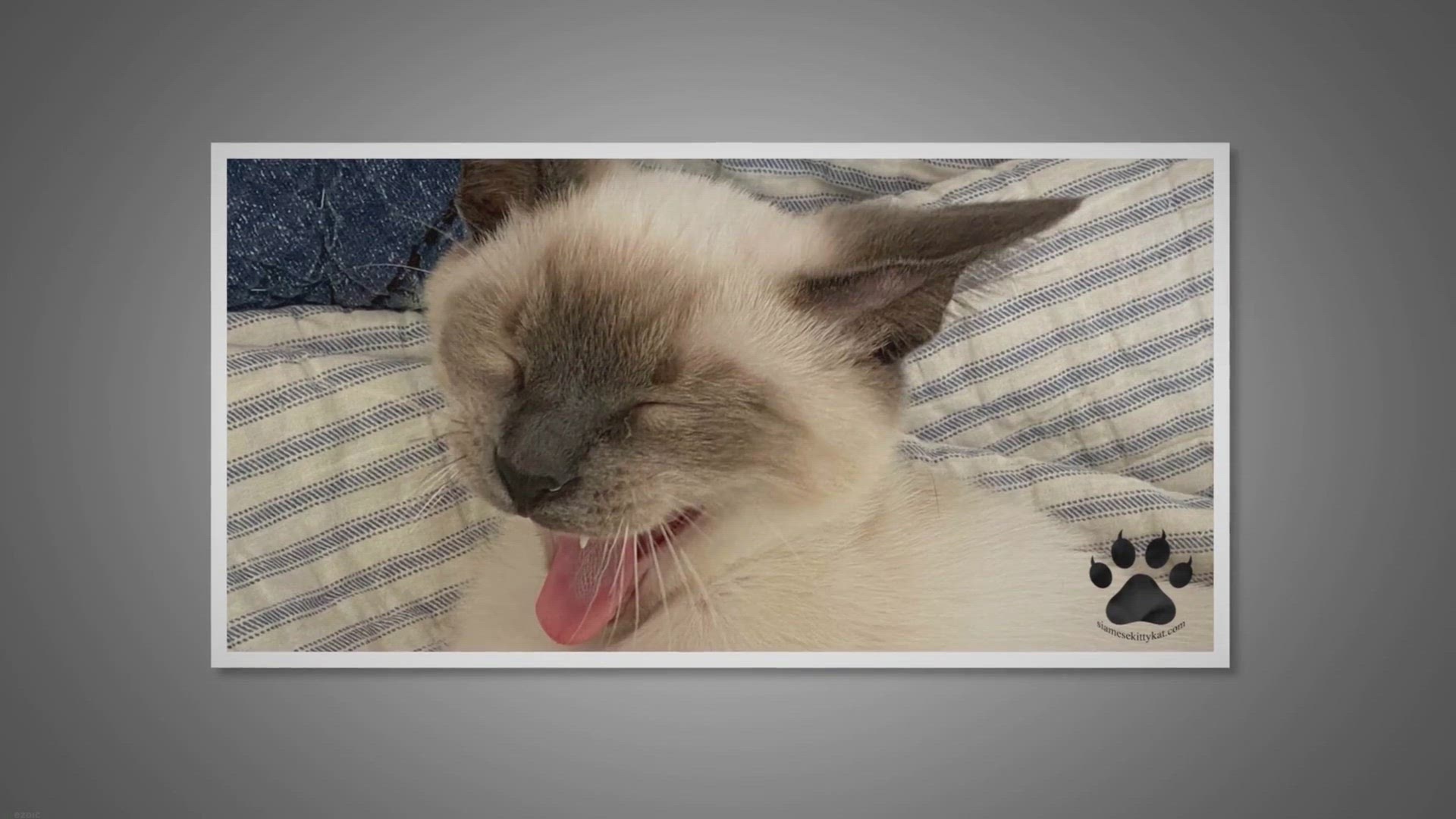
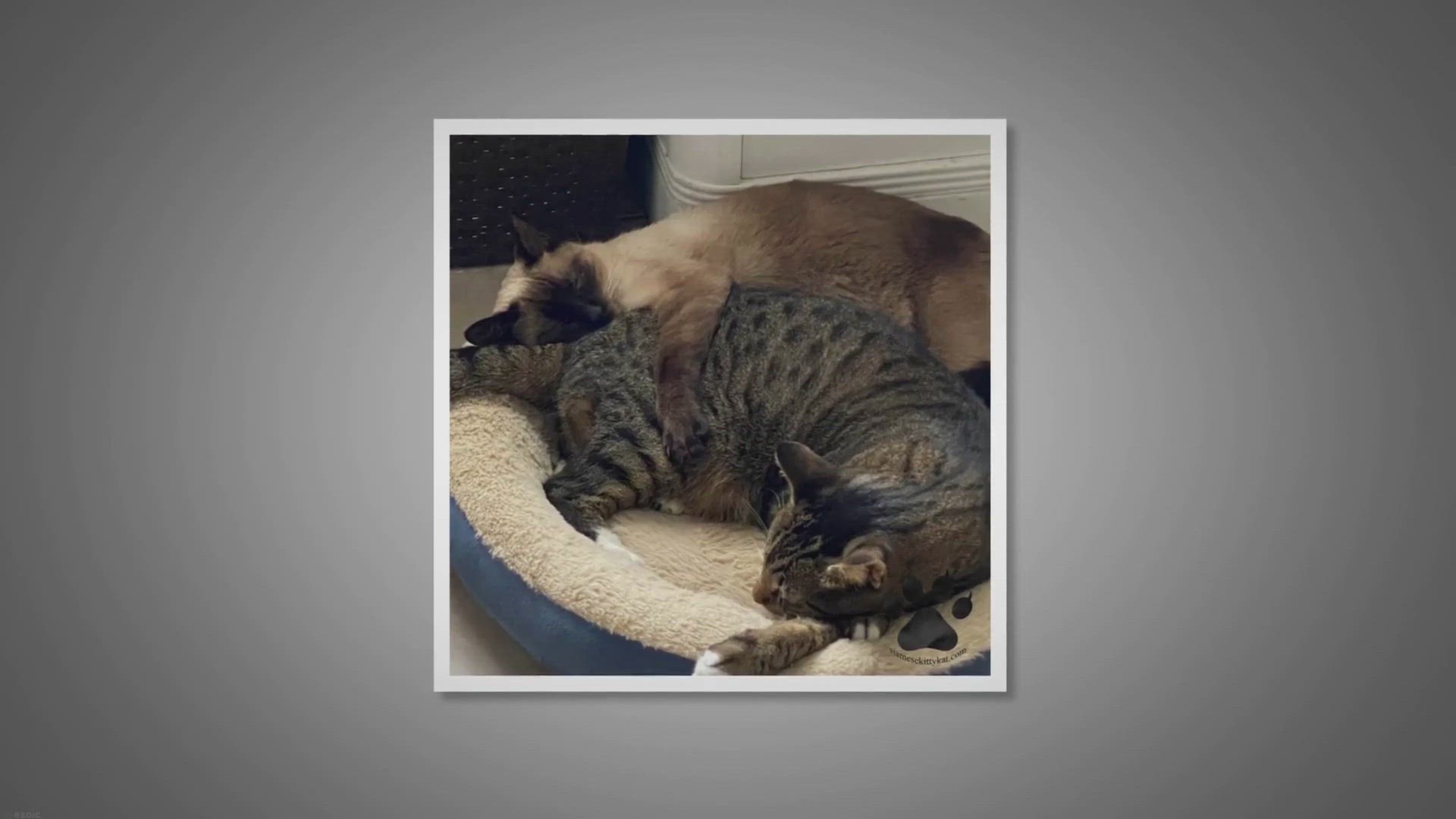
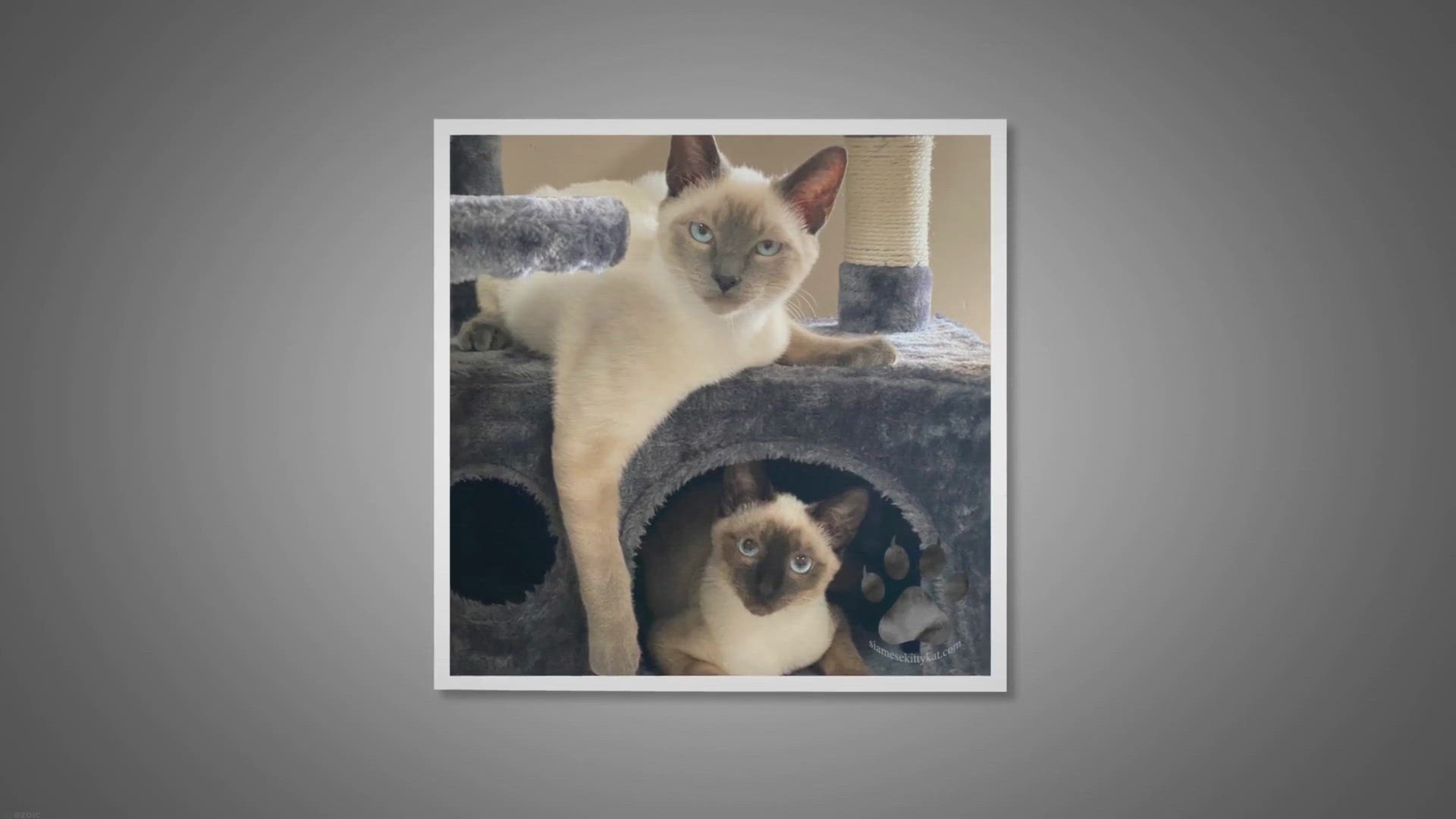
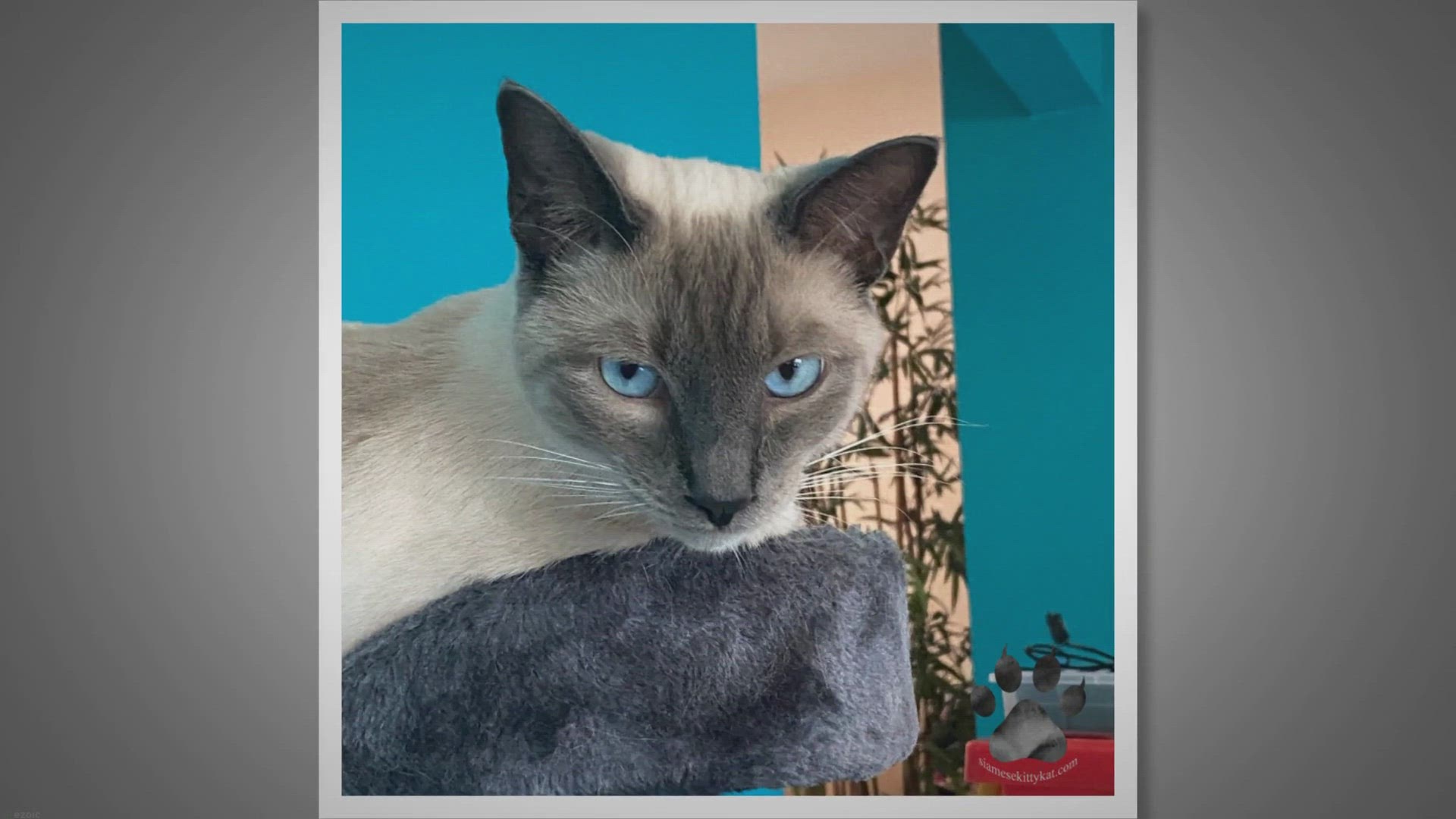
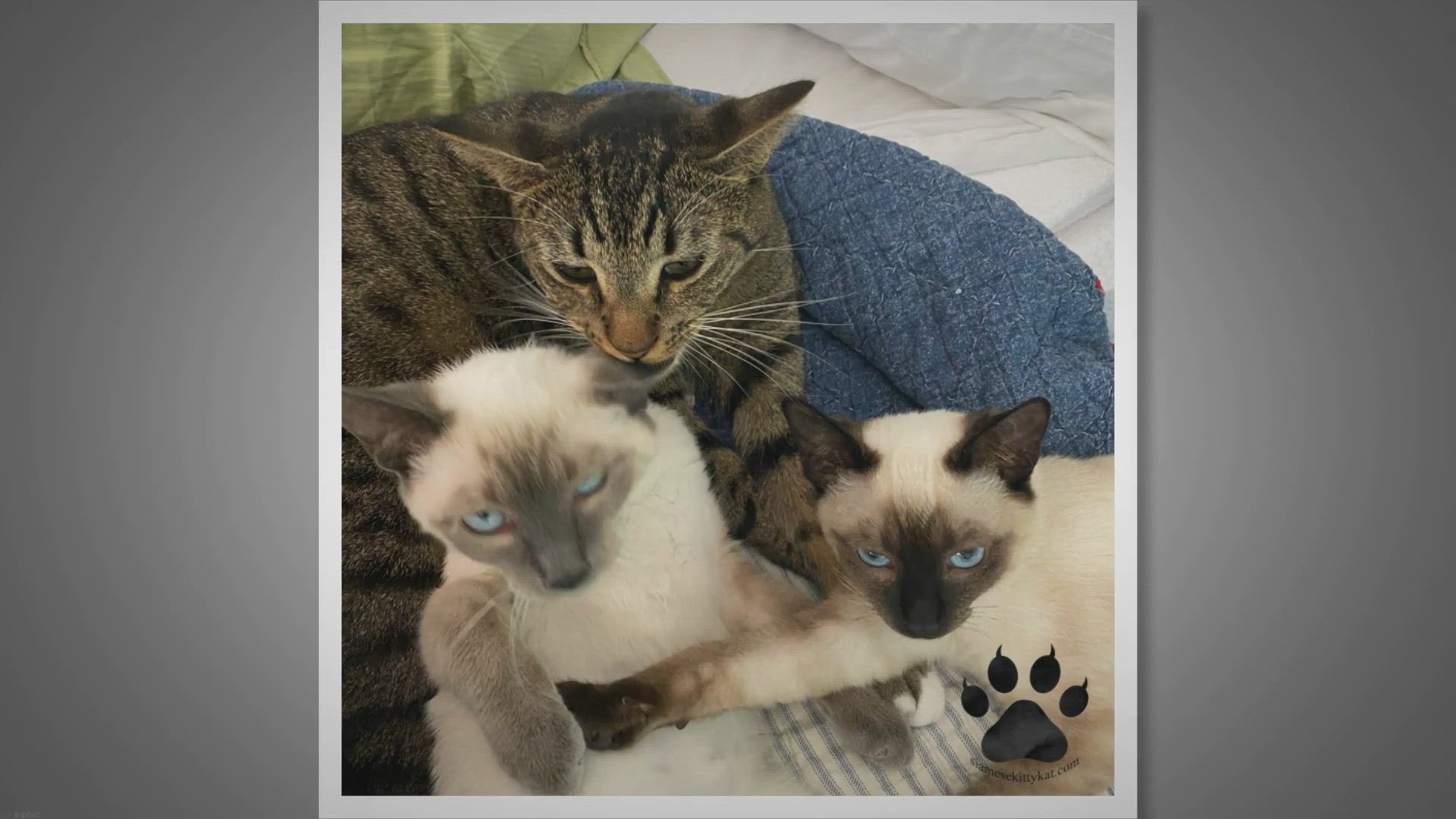
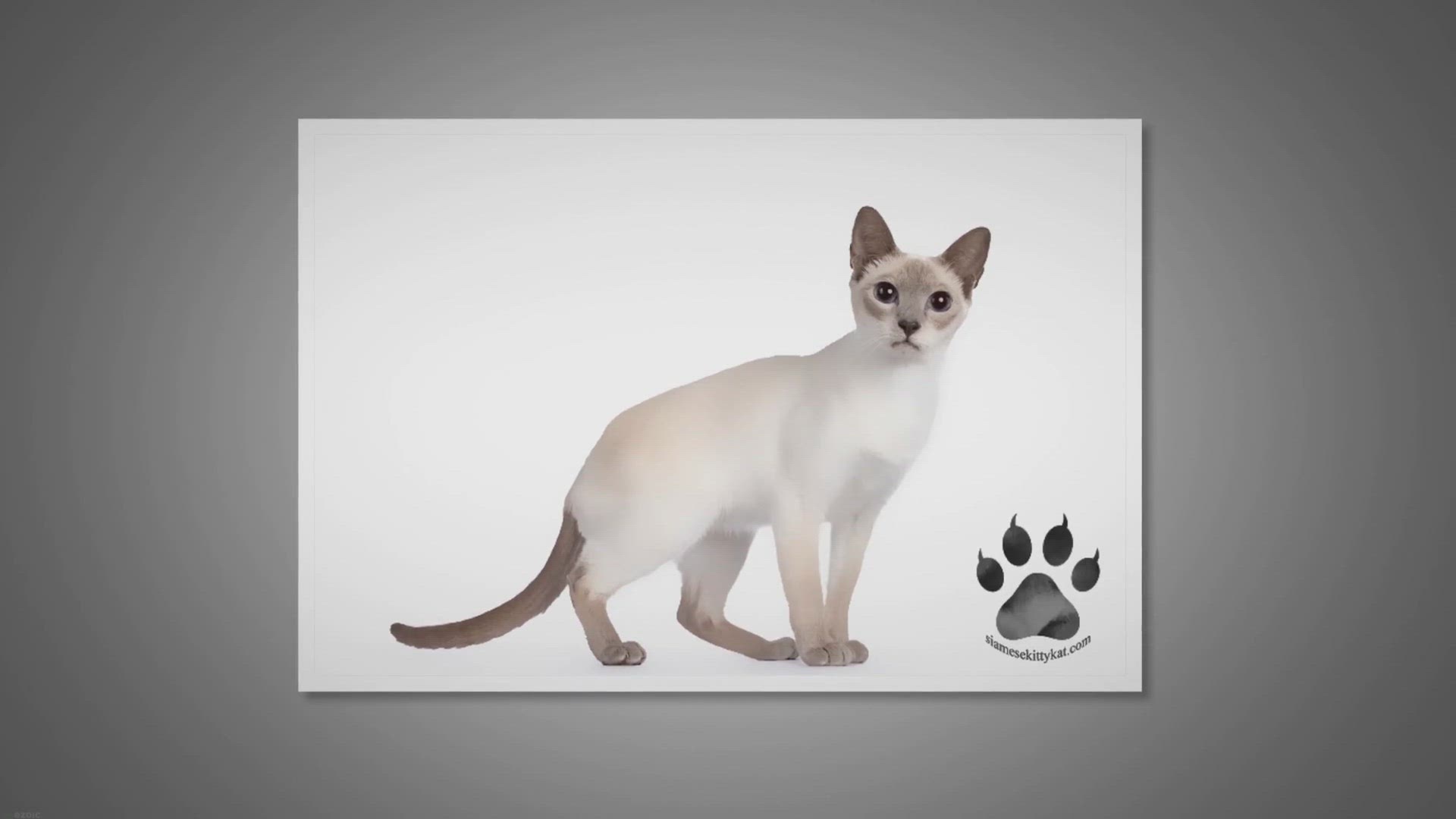
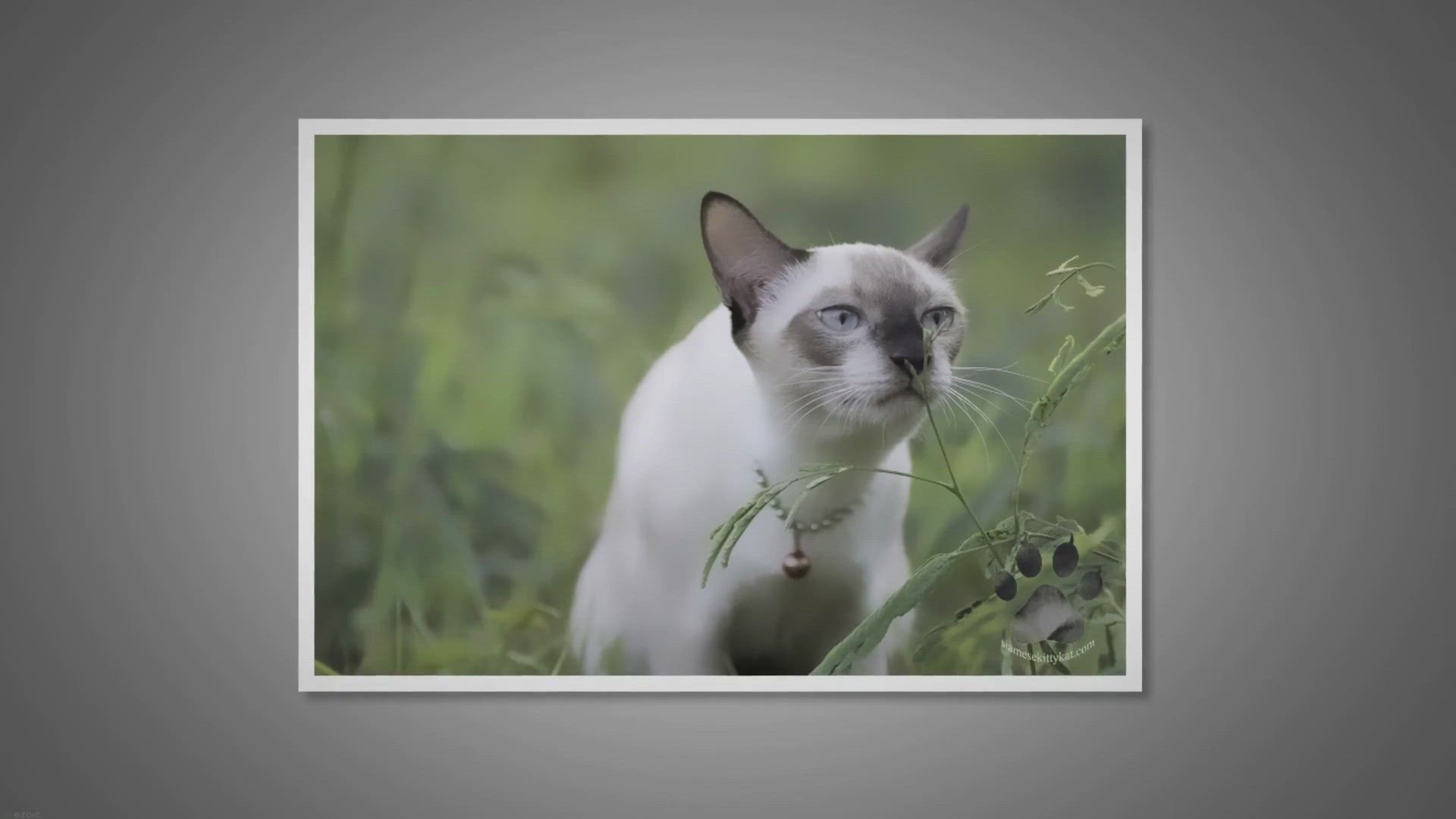
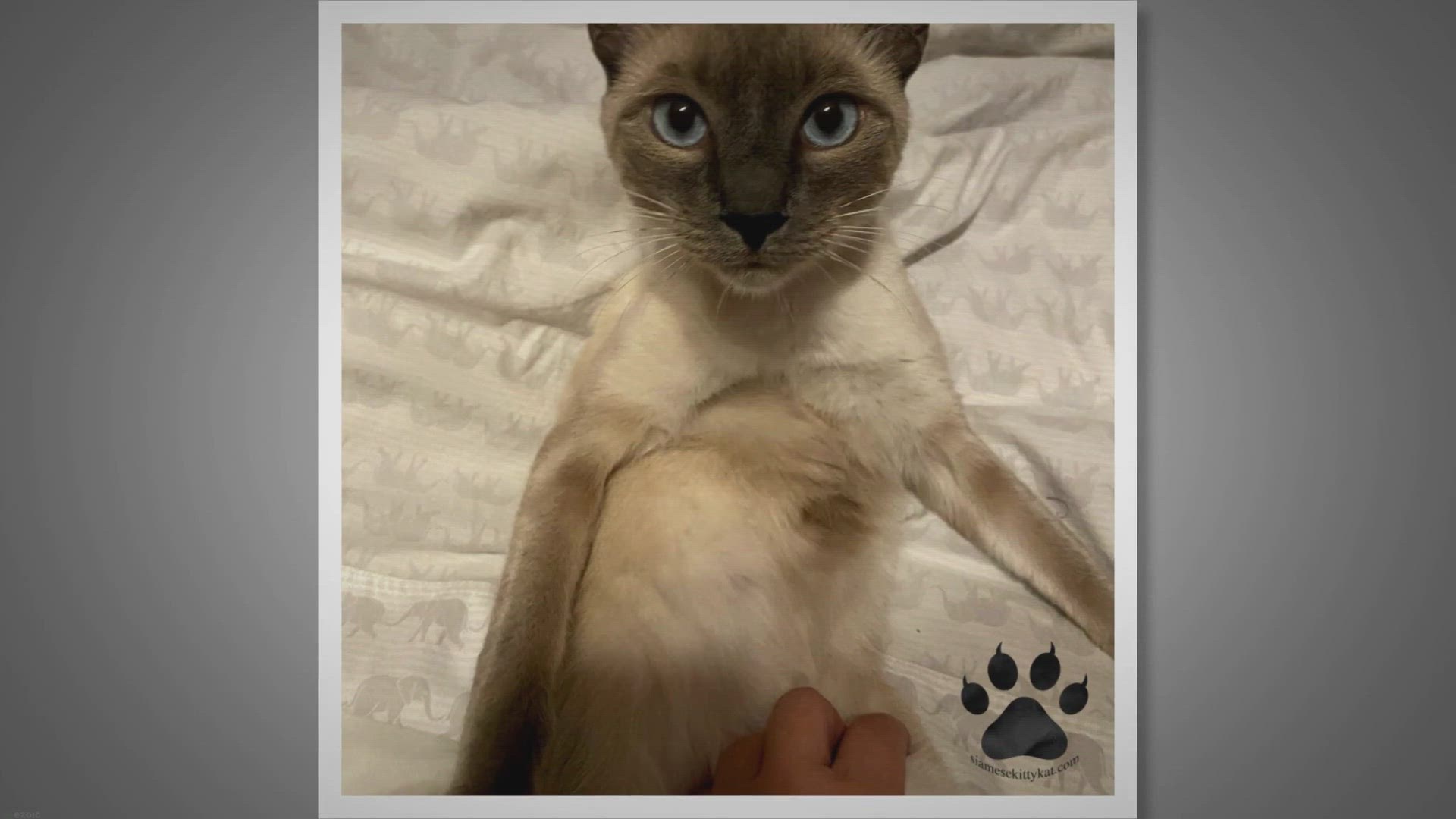
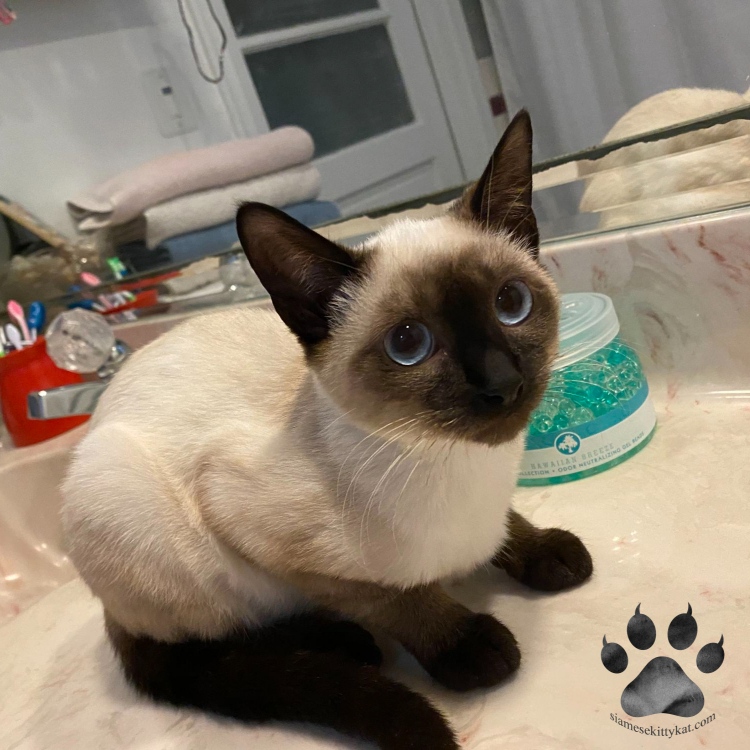
 Affiliate Link Notice
Affiliate Link Notice